World
Russian Military Tests Zircon Hypersonic Missile; Domestic Oil Refinery Ablaze After Ukrainian Strike

On the 12th, Russia and Belarus launched “Zapad 2025”, a large-scale joint military exercise that will run until the 16th, mobilizing around 30,000 troops to showcase military deterrence against NATO. Russia’s Ministry of Defense released footage highlighting the Northern Fleet’s frigate Admiral Golovko successfully test-firing a Zircon hypersonic cruise missile in the Barents Sea, striking its target with precision. According to President Vladimir Putin, the Zircon can reach speeds of up to Mach 9, has a maximum range of 1,000 kilometers, and can carry a 300–400 kilogram warhead, making it a key weapon designed to penetrate NATO’s defenses.
Meanwhile, Ukrainian drones struck deep into Russian territory, about 800 kilometers inside the border, successfully bombing the Kirishi Refinery—one of Russia’s largest oil processing facilities. The explosion sent massive flames into the sky and caused extensive damage. The refinery has an annual capacity of roughly 20 million tons, accounting for 6.4% of Russia’s total crude output. The strike dealt a heavy blow to Russia’s energy infrastructure and once again demonstrated Ukraine’s growing long-range strike capability.
As the war between Russia and Ukraine intensifies, the combination of large-scale drills and deep strikes has drawn significant international attention. U.S. President Donald Trump reiterated his criticism that current sanctions against Moscow are insufficient, warning that he is prepared to impose harsher measures targeting Russia’s oil sector. With NATO and Russia ramping up military activity, geopolitical risks are rising, threatening renewed volatility in global energy markets and security dynamics.
- 48 reads
Russian Drone Violates Polish Airspace; U.S. Secretary of State: "Unacceptable"

U.S. Secretary of State Marco Rubio on the 14th warned that Russian drones had violated Polish airspace earlier this week during attacks on Ukraine, calling it an “unfortunate and dangerous development.”
In an interview in Washington, Rubio said the key question was whether the drones intentionally entered Polish territory: “If evidence shows it was deliberate, the situation will clearly escalate.”
U.S. President Donald Trump had stated on the 11th that the Russian drones may have “strayed” into Polish airspace, but his remarks raised doubts among European nations. Polish Prime Minister Donald Tusk immediately pushed back, writing on X: “Of course we hope it was accidental, but that is not the case—we know the truth.”
Polish authorities reported that a total of 17 Russian drones crossed into the country’s eastern airspace on the 10th, all of which were shot down. While no casualties or major damage occurred, debris confirmed their Russian origin. The incident comes as Moscow rejected Trump’s proposal for a ceasefire in Ukraine.
As a NATO member, Poland’s security is guaranteed by U.S.-led allied forces. Many European countries and the European Union see this incident as a test of Russia’s willingness to challenge NATO’s resolve.
- 28 reads
Nepal’s First Female Prime Minister Takes Office, President Dissolves Parliament for March Election

After the bloody turmoil in early September, Nepal’s President Ramchandra Paudel appointed former Supreme Court Chief Justice Sushila Karki to lead a transitional government. Karki was sworn in on the 12th, becoming Nepal’s first female prime minister in history.
The political shift was triggered when the government blocked Facebook, Instagram, and other social media platforms, sparking public protests that quickly escalated into broader anger over corruption, nepotism, and high unemployment. The movement was largely driven by Generation Z, who organized through social media and online forums, demonstrating unprecedented political influence. During the unrest, multiple public buildings in the capital Kathmandu were set on fire, while clashes between police and protesters left at least 51 people dead and thousands injured. The situation spiraled out of control, with demonstrators storming and torching the homes of senior officials. Indian media reported that a former prime minister’s wife was burned to death. Ultimately, Prime Minister K.P. Sharma Oli submitted his resignation to President Paudel on the 9th before fleeing with several cabinet members.
President Paudel immediately announced the dissolution of the House of Representatives and tasked Karki with forming an interim government. Karki, known for her strong anti-corruption stance and commitment to judicial independence during her tenure as chief justice, declared upon taking office that her mandate would be limited to six months. She pledged to stabilize the country and prepare for new parliamentary elections, tentatively scheduled for March 5 next year. Karki emphasized that the transitional government’s top priority would be to respond to young people’s demands for transparency, integrity, and fairness, while investigating responsibility for deaths and injuries during the protests and rebuilding public trust in government. She said: “We will listen to the voices of the new generation. This is not just a transition but the beginning of a new chapter for Nepal.”
However, President Paudel’s decision to dissolve parliament has been challenged by several political parties, including the Communist Party of Nepal, who argue it is unconstitutional and demand the legislature be restored. Protesters, meanwhile, had listed the dissolution of parliament as one of their key demands, fueled by anger at politicians’ lavish lifestyles and corruption. Despite the change in leadership, the country still faces the aftermath of unrest and unresolved security issues, including the pursuit of fugitives after prison riots, compensation for victims, and reconstruction of public facilities. The military’s role during the crisis has also raised concerns about possible political intervention by the armed forces.
The international community has broadly called for calm and stability in Nepal. Neighboring countries such as India and China have expressed both concern and congratulations to the new government, hoping for a smooth transition and urging Nepal to prevent unrest from spilling over its borders.
- 22 reads
Over 300 South Korean Hyundai Workers Deported; Protesters Hold Anti-Trump Signs at Airport
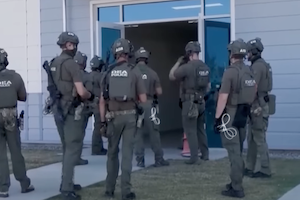
On September 4, the U.S. Immigration and Customs Enforcement (ICE) raided a South Korean Hyundai electric vehicle battery plant in Georgia, citing violations of immigration laws. A total of 475 individuals were arrested on-site, including more than 300 South Korean workers. After over a week, more than 300 of the detained South Korean workers were deported on September 12 via a chartered flight. The incident has not only shocked South Korean society but also cast a shadow over South Korea–U.S. relations.
The Korean Air Boeing 747-8I carrying 316 deported South Korean workers and 14 other foreign employees took off from Atlanta, Georgia, and landed at Incheon International Airport in South Korea on the afternoon of the 12th local time.
At Incheon Airport’s arrivals area, the scene was crowded with anxious family members awaiting the return of their loved ones. Protesters also gathered, holding posters depicting former President Donald Trump wearing an ICE uniform, armed and carrying bags of money. Others held signs with slogans such as, "You asked us to invest, but you arrested us!" The demonstrations briefly prompted police intervention.
To protect the privacy of the returning workers, South Korea’s Ministry of Foreign Affairs advised the media to blur photos and videos. Security at the airport was tight, and deported workers used a separate exit from other passengers. Many of the South Korean workers, dressed in plain clothes and wearing masks, were visibly emotional and tearful as they reunited with family and friends.
South Korea’s largest labor union, the Korean Confederation of Trade Unions (KCTU), has demanded an apology from Trump and called on the South Korean government to suspend its investment plans in the U.S. The union stated that the arrests and detentions by the Trump administration were a clear violation of human rights.
Kang Hoon-sik, Chief Presidential Secretary, personally went to the airport to receive the returning workers, emphasizing that President Lee Jae-myung considers the matter a top priority. South Korean Foreign Minister Cho Hyun stated that the Ministry of Foreign Affairs will discuss the establishment of a joint task force with the U.S. State Department to address visa-related issues and explore measures to ensure that South Korean employees working in business and investment roles in the U.S. can quickly obtain the necessary visas.
- Read more
- 45 reads
U.S. Politics in Turmoil: Conservative Youth Spokesman Charlie Kirk Fatally Shot During Campus Speech

Charlie Kirk, a political ally of former U.S. President Donald Trump and a prominent conservative commentator, was fatally shot on September 10th while giving a speech at Utah Valley University. Approximately 3,000 people were in attendance at the time. Following the incident, President Trump posted a message of mourning on social media and ordered flags to be flown at half-staff nationwide as a mark of respect.
Kirk, 31, was the founder of the conservative organization "Turning Point USA." A strong supporter of Trump, he played a key role in Trump’s political campaigns. Originally from the suburbs of Chicago, Kirk dropped out of college to pursue activism. In recent years, he had made university campuses the central platform of his outreach efforts, encouraging students and the public to ask him questions directly in a debate format. At the time of the shooting, he was reportedly responding to a question about transgender shooters.
The investigation is currently being led jointly by the FBI and the Utah Department of Public Safety. Two individuals were arrested but were later released after it was determined they had no direct connection to the shooting. So far, no motive has been identified, and there is no additional information about the shooter. According to eyewitnesses, the shooter appeared to be positioned on the roof of the Losee Center, approximately 130 meters from Kirk.
- 37 reads
Israeli Airstrike on Hamas Base in Qatar Sparks International Condemnation
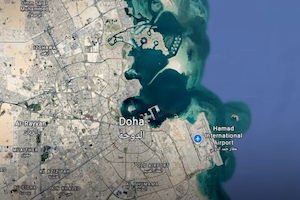
On the 9th, Israel launched an airstrike targeting a Hamas base located in Doha, the capital of Qatar. The Israeli government claimed the strike aimed to eliminate Hamas leadership and members of its ceasefire negotiation team. The attack resulted in six deaths, five of whom were identified as members of Hamas.
Qatar has long positioned itself as a neutral mediator in international conflicts and has played a key role in brokering ceasefires between Israel and Hamas during periods of intense fighting. Qatari Prime Minister Sheikh Mohammed bin Abdulrahman Al Thani emphasized that Qatar "reserves the right to respond to this blatant aggression," calling the airstrike a "critical moment for the region." Despite what he described as a "blatant attack," he stated that Qatar would continue mediating efforts to achieve a ceasefire in Gaza and the release of hostages.
Qatar is a major U.S. ally in the Middle East and hosts the largest American military base in the region. Since 2012, with U.S. approval, it has also served as the political headquarters of Hamas. Regarding the attack, former President Donald Trump stated that he had tried to stop Israel from striking Qatar, but it was "too late." He stressed, "This was Prime Minister Netanyahu's decision, not mine." Trump added that after the Israeli strike, he spoke with Qatar’s Emir Sheikh Tamim bin Hamad Al-Thani, assuring him that "such incidents would not happen again on their territory."
The Israeli airstrike on Qatar has severely undermined Qatar's role as a mediator. UN Secretary-General António Guterres stated that the attack was a "blatant violation of Qatar’s sovereignty and territorial integrity." France, the United Kingdom, and others also voiced opposition to Israel's actions, expressing concern that the incident could further destabilize the region.
- Read more
- 21 reads
Government Corruption and Social Media Ban Spark Mass Protests in Nepal
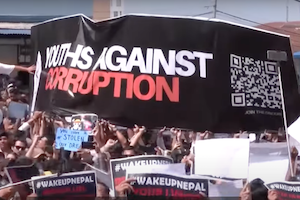
A massive clash between police and protesters erupted in Nepal's capital, Kathmandu, on September 8, marking the country's most severe unrest in decades. Thousands of citizens, responding to a call from “Generation Z demonstrators,” gathered around the Parliament building to protest against the government’s ban on social media platforms and to denounce widespread corruption.
According to international reports, the protest quickly escalated as demonstrators surged toward the Parliament, attempting to breach security zones, tearing down barbed wire, and setting vehicles on fire. Police responded with water cannons, tear gas, rubber bullets, and even live ammunition to forcibly disperse the crowd. Official figures report at least 19 deaths and over a hundred injuries from the clashes.
The government subsequently imposed curfews in several regions and held an emergency meeting late at night. Following the meeting, authorities lifted the social media ban, stating that they had "responded to the demands of Generation Z." Interior Minister Ramesh Lekhak resigned, taking responsibility for the police's violent crackdown. Prime Minister KP Sharma Oli also announced his resignation under mounting pressure.
The social media ban was initially imposed in response to the rising popularity of the “Royal Offspring” movement on various platforms. This movement exposed the lavish lifestyles and corrupt activities of politicians’ children, sparking widespread public outrage. Citing concerns over fake news, hate speech, and fraud, the government blocked access to 26 platforms—including Facebook, X (formerly Twitter), and YouTube—claiming they had failed to comply with registration requirements set by the Ministry of Communication and Information Technology.
Nepal remains on edge, with growing public demands for government transparency and freedom of expression.
- 30 reads
EU Says Relations with Trump Enter a "New Chapter," Easing Transatlantic Tensions
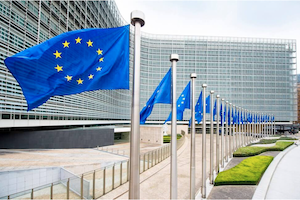
Brussels, Sept. 8 (CNA) — The European Union and the United States have recently reached consensus on issues including aid to Ukraine, defense spending, and trade policy, leading to a marked easing of the long-standing transatlantic tensions. European Council President António Costa stated that interactions with U.S. President Donald Trump have “entered a new chapter,” emphasizing that both sides have worked over the past nine months to stabilize relations and lay a solid foundation for future cooperation.
Although Trump had previously criticized the EU as being created to “undermine the U.S.” and accused Europe of free-riding on America’s defense support and contributions to Ukraine, he has lately praised European leaders and lauded relations with the EU, expressing willingness to deepen cooperation. This shift in tone has drawn widespread attention across European political circles. Costa remarked, “We welcome the goodwill shown by the U.S. side — this is the first step in building mutual trust.”
While the U.S. and EU have reached a trade agreement and relations are moving in a positive direction, caution remains within the bloc regarding the stability of Trump’s policies, particularly in areas central to Europe’s auto industry, where details remain unclear. An anonymous official noted, “These agreements are symbolic, but time is needed to verify their substantive benefits.”
As EU-U.S. relations gradually stabilize, new dynamics may emerge in the global political and economic landscape. Despite lingering differences, the willingness of both sides to cooperate injects fresh hope and potential into the future of the transatlantic partnership.
- 23 reads
Ishiba Resigns as Prime Minister in Press Conference at Official Residence
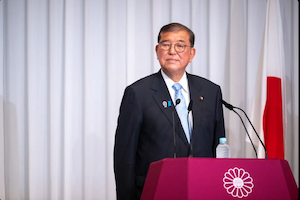
Japanese Prime Minister Shigeru Ishiba announced his resignation as prime minister and president of the Liberal Democratic Party (LDP) at a press conference held at the Prime Minister’s Office on the evening of the 7th. He stated that, in light of recent intra-party pressure and domestic and international challenges, he believed the time had come for a “phase-ending” and that new leadership should take the helm to guide the country into its next stage. Ishiba admitted that his greatest regret was failing to dispel the public’s distrust of politics. He also stressed that if the LDP does not change, it has no future. Stepping down after less than a year in office has injected new uncertainty into Japan’s political landscape.
Under Ishiba’s leadership, the LDP suffered consecutive defeats in the December 2024 House of Representatives election and the July 2025 House of Councillors election, falling short of his target of winning 50 seats. For the first time in its 70-year history, the LDP was reduced to a minority ruling party. Growing voices within the party demanded he take responsibility for the losses. Although Ishiba attempted to stabilize the political situation and emphasized that “national politics must not come to a standstill,” he ultimately chose to resign following advice from heavyweight party figures such as Taro Aso, Yoshihide Suga, and Shinjiro Koizumi.
Despite his short tenure, Ishiba achieved some breakthroughs in economic policy, including distributing subsidies to counter inflation and raising the minimum wage, which gained support from parts of the public. At the press conference, he noted that he had recently completed tariff negotiations with the United States and signed a memorandum of understanding, followed by an executive order from the U.S. president. He described this as the completion of an important mission during his time in office. His resignation, he said, is intended to give a new leader space to push forward reforms and unite the party. The LDP will hold its presidential election in early October.
- 24 reads
US Deploys 10 Fighter Jets to the Caribbean; Trump Denies Attempt to Overthrow Venezuelan Regime
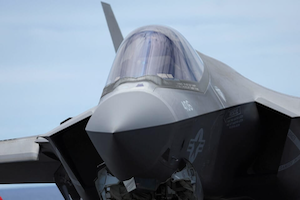
Last week, U.S. forces destroyed a speedboat suspected of transporting drugs that had departed from Venezuela in international waters, leaving 11 people dead. On the 5th, the U.S. military further reinforced its deployment near Venezuelan waters, with President Trump ordering 10 F-35 stealth fighter jets to arrive in Puerto Rico in support of joint operations against Latin American drug cartels and transnational gangs.
President Trump stressed, “We are not talking about regime change,” denying outside claims that Washington is attempting to use military pressure to overthrow Venezuelan President Nicolás Maduro. However, he added: “But we are talking about the elections in Venezuela. To put it mildly, it was a very strange election.” He was referring to last year’s Venezuelan presidential contest, which was overshadowed by allegations of election fraud.
According to U.S. officials, in addition to the F-35s, at least seven warships and one nuclear-powered attack submarine have been deployed across the southern Caribbean, with more than 4,500 Navy and Marine Corps personnel in total. The Marines have also been conducting amphibious and flight training exercises in southern Puerto Rico.
On the 4th, two Venezuelan F-16 fighter jets approached a U.S. destroyer over international waters, which Washington described as a “highly provocative” move. Maduro, meanwhile, accused the U.S. of seeking regime change under the guise of military threats and announced plans to mobilize millions of militia members in response to the American military buildup in nearby waters. He criticized Washington for “politicizing the war on drugs” and demanded that the U.S. respect Venezuela’s sovereignty and right to peace.
CNN, citing multiple sources, reported that Trump is weighing direct military strikes against drug trafficking groups inside Venezuela, including potential attacks on domestic targets. Several sources told CNN that Tuesday’s strike was merely the beginning of a larger-scale operation aimed at eliminating drug trafficking in the region — and potentially undermining Maduro’s grip on power.
During his first term, Trump made repeated attempts to oust Maduro, employing a variety of pressure tactics in hopes of pushing Venezuela toward democratic transition. Those efforts ultimately failed, and Maduro went on to secure a disputed election victory that has kept him in power to this day.
- 37 reads
Human Rights
Fostering a More Humane World: The 28th Eurasian Economic Summi

Conscience, Hope, and Action: Keys to Global Peace and Sustainability

Ringing FOWPAL’s Peace Bell for the World:Nobel Peace Prize Laureates’ Visions and Actions

Protecting the World’s Cultural Diversity for a Sustainable Future

Puppet Show I International Friendship Day 2020

